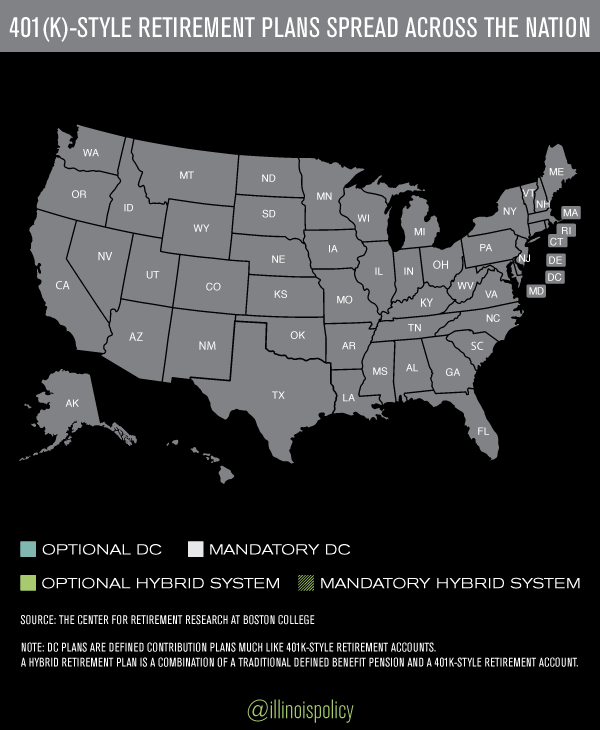Private and public sectors trade pension plans for real retirement security
Over the last three decades, private-sector companies have transitioned away from traditional pension plans and toward 401(k)-style plans for their employees. While the traditional pension plans were unpredictable and unmanageable, these 401(k)-style plans offered companies a greater level of certainty in their budget and gave employees greater control over their retirement accounts. Today, 85 percent...
Over the last three decades, private-sector companies have transitioned away from traditional pension plans and toward 401(k)-style plans for their employees. While the traditional pension plans were unpredictable and unmanageable, these 401(k)-style plans offered companies a greater level of certainty in their budget and gave employees greater control over their retirement accounts.
Today, 85 percent of all private-sector workers are covered by 401(k)s.
As it turns out, there are still some companies that struggle with leftover pension plans – and they want that risk off their books. GM and Verizon, for example, which now offer their workers 401(k)s, recently offloaded their remaining pension obligations to private insurance companies.
Now, insurance companies, and not the employers, will manage the headaches of those pensions going forward.
GM and Verizon aren’t the only companies wanting to divorce themselves from pensions. A recent Prudential survey of 182 companies with at least $250 million in pension-plan assets found that:
“53 percent of them [companies] have either transferred defined benefit pension liabilities to a third-party insurer or ‘are likely to’ in the next two years. That is a sharp increase from a 2010 survey.”
There’s no question that private-sector, defined-benefit pension plans are outdated.
The good news is that governments across the country are finally catching on to that trend. With more than $4 trillion in pension shortfalls nationwide, state and local governments are aiming for greater budget certainty. They, too, are finally embracing 401(k)s as part of their retirement plans going forward.
Since the Great Recession, six states including Rhode Island, Virginia and Tennessee have moved some of their workers to 401(k)-style plans. Oklahoma was the most recent convert. This summer the state passed a law that will put new state workers in 401(k)-style plans beginning next year.
Illinois should follow the lead of states like Oklahoma. With its pension plans nearing insolvency, Illinois needs reform that gives its government workers the retirement security they deserve.
401(k)s can provide that security. They can also provide the state with the budget certainty it needs. It’s time for Illinois to get rid of the unpredictable and unmanageable pensions that burden the state, its employees and its taxpayers.
